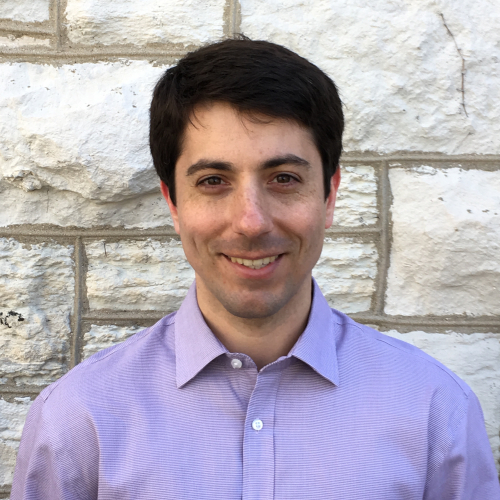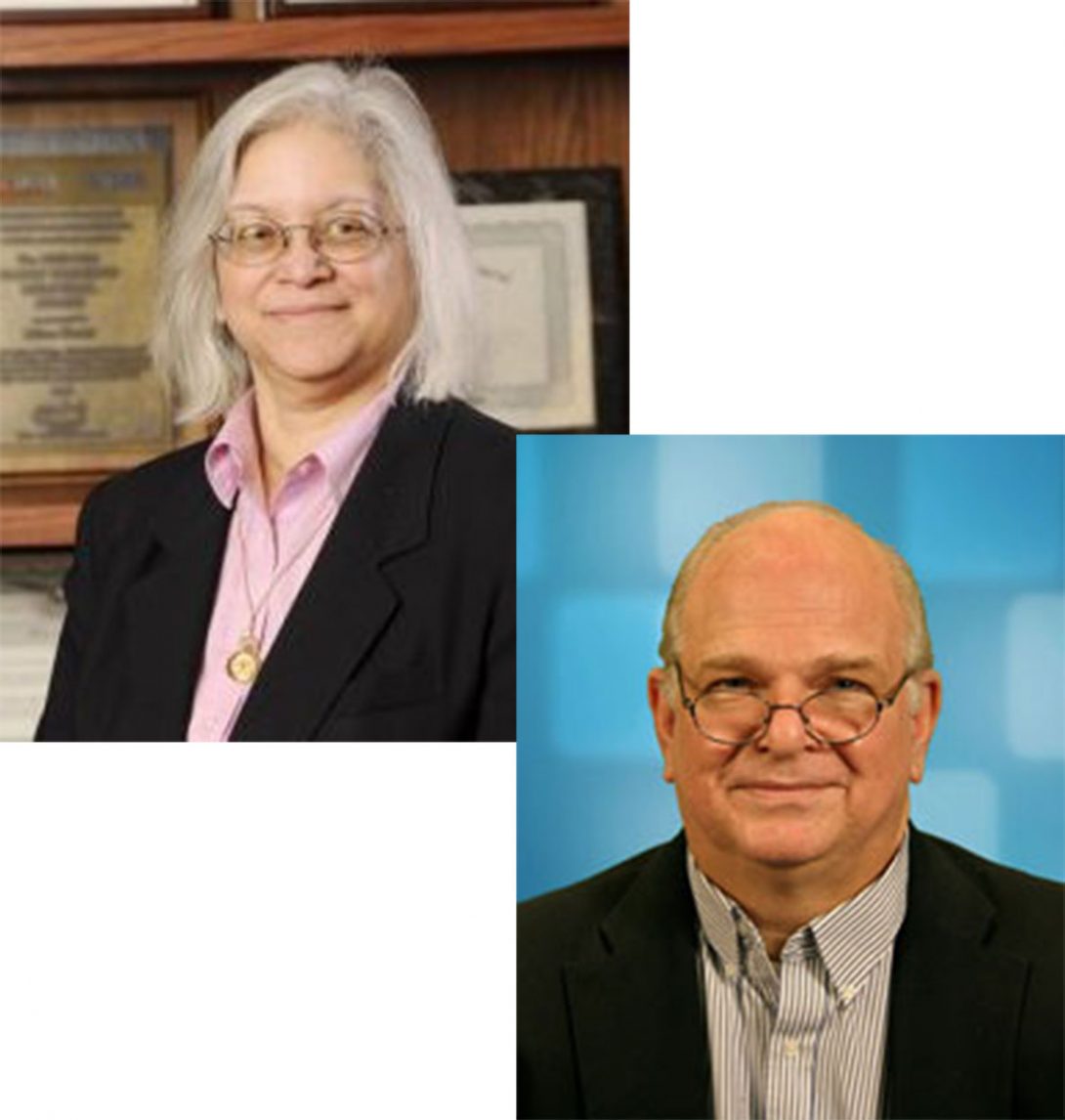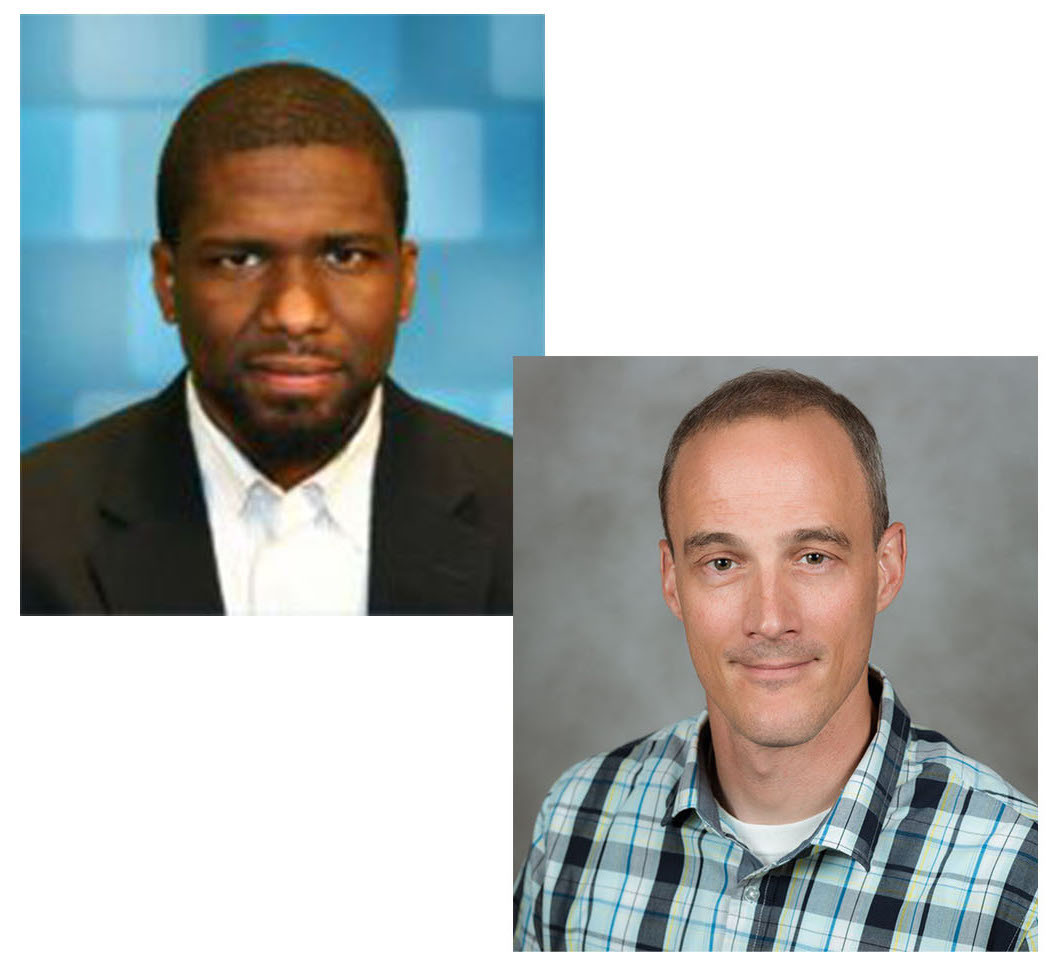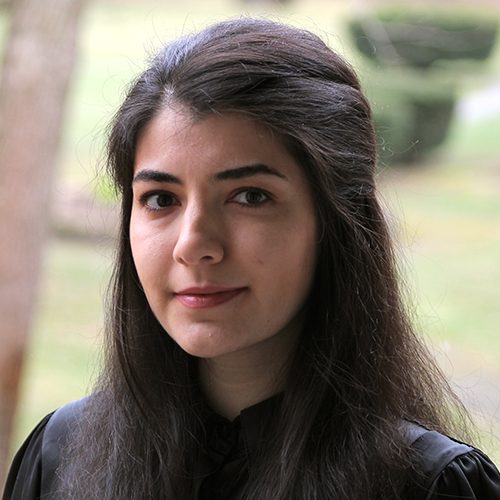Materials Science and Engineering
Materials Science 1 Heading link

Dr. Matt Daly is an Assistant Professor in the Department of Civil, Materials and Environmental Engineering at UIC, and heads the Advanced Materials and Microstructures Lab in the College of Engineering. His research seeks to understand the how microstructure, the way in which the individual particles or grains of a material are organized, influences material performance. Students working in the Daly group will use both computational and experimental methods designed to understand how altering the microstructure of a material affects its physical properties. For example, copper, which is normally soft and workable, can be engineered to become stronger than steel by appropriately altering its microstructure.
- Engineered materials can then be used for structural lightweighting — reducing the weight of components in a material without affecting its load-carrying capabilities. Design of materials for lightweighting applications involves both physical property testing and computer simulations of material performance.
- The Daly group also synthesizes, processes and characterizes new materials. This begins with the casting of components, followed by forming and heat treatment, and then extends to mechanical testing to measure material properties. Deformation processes are modeled by computer simulations using tools that are developed in the group.
Students who enjoyed and performed well in the following coursework will be a good match for the Daly group: CME 201, CME 203, CME/ME 261 and ME 380.
On the computational side, students who have experience coding in Python or other languages, and/or experience with Linux-based systems will be a good match for projects in the group. Experimentally, helpful skills include a familiarity with running experimental testing equipment, technical drawing software, and good chemistry laboratory techniques. Students may pursue a combination of experimental and computational work if desired.
Materials Science 2 Heading link

Dr. Mitra Dutta is a Distinguished Professor in the Department of Electrical and Computer Engineering at UIC. Dr. Dutta is also associated with the Civil and Materials Engineering department and the Physics department in LAS.
Dr. Michael Stroscio is the Richard and Loan Hill Professor and Distinguished Professor in the Department of Electrical and Computer Engineering, and also a member of the Bioengineering Department.
Together Professors Dutta and Stroscio direct a research group that carries out theoretical/computational and experimental studies of novel nanoelectronic, optoelectronic and bionanoelectronic devices. In addition to working on the fabrication of devices for specific applications, the Dutta-Stroscio group also explores the basic physics of these devices in order to improve their performance. The group has a variety of different projects available for undergraduate students in the ERTC, including:
- Properties of Novel Electronic Materials: How does the atomic and molecular structure of a material influence its electronic properties? These properties will dictate how the material can be used to construct an actual device for a specific use. Experimental studies of the structure and properties of these materials include the use of specialized tools such as photoluminescence, scanning electron microscopy and transmission electron microscopy. Computer modeling of the electronic transport properties of materials gives important information that is difficult to obtain by experiments.
- Bionanotechnology: How do we create devices that can monitor processes inside a human cell? Bionanostructures are fabricated in the laboratory and their electronic properties studied for applications as sensors having a high selectivity to toxins and other biological signatures. Evaluation of the mechanical properties is also crucial for creating a device that will operate inside the human body.
Materials Science 3 Heading link

Dr. Jeremiah Abiade is an Associate Professor in the Department of Mechanical and Industrial Engineering at UIC. His interests are in the growth and characterization of thin films of metal oxides using a pulsed laser deposition method for producing devices relevant to energy research. In Dr. Abiade’s Laboratory for Oxide Research and Education, there are two principal research directions taking place:
- Novel Surfaces and Interfaces : Can we create new types of surfaces and interfaces with tailored properties by adjusting the conditions and chemistry with which we grow thin films?
- Magnetic Properties of Oxide Materials : Magnetism is among the most important of all physical properties in terms of making functional devices. Is it possible to control the magnetic properties of of thin films using specialized growth techniques?
Dr. Robert Klie is a Professor in the Department of Physics at UIC. In his research program, Dr. Klie uses imaging techniques such as scanning electron microscopy and transmission electron microscopy to investigate the unique properties of nanomaterials, and to gain insight into the fundamental question of how the atomic structure of a material controls its properties.
Dr. Klie also pursues the development of new ways to use these highly specialized tools in order to image and understand the properties of materials at the atomic scale. He also explores the use of changing temperature during imaging experiments to obtain information on how the properties of materials can be altered at high and low temperature. In particular, Dr. Klie looks at how defects in materials can alter their properties, and how the highly imperfect surfaces of materials can be used to control specific types of chemical reactions.
Materials Science 4 Heading link

Dr. Sara Kadkhodaei is an Assistant Professor of Materials Engineering at UIC, and directs the Computational Materials Research Lab (CMRL). Undergraduate research in the CMRL is focused on the computational modeling and simulation of different properties and processes in materials. Our goal is to accelerate the discovery and design of new materials for different applications by utilizing available theories, computational tools, and databases, without costly, time-consuming experiments.
Undergraduate researchers at the CMRL use the Thermo-calc software, a collection of computational tools and databases, to predict and understand materials properties, study the thermodynamic stability of new materials, and simulate the kinetic processes in alloys, ceramics, or semi-conductors. Professor Kadkhodaei and her students also compete in the ASM Undergraduate Design Competition.
Undergraduate researchers at the CMRL also use machine learning methods to predict properties from available materials database using natural language processing methods to extract useful information about materials processing from the literature.